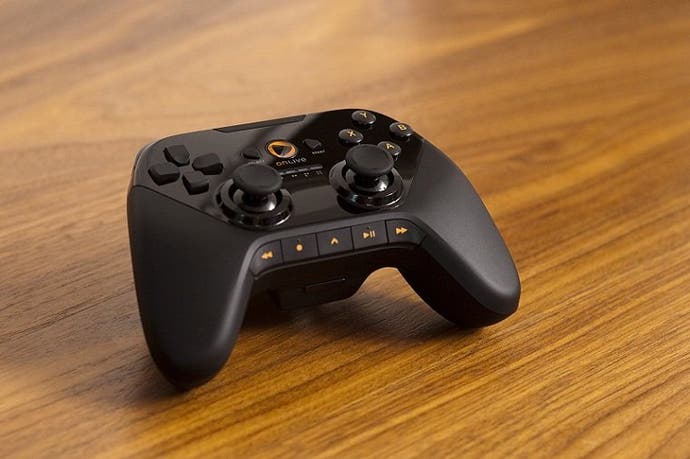OnLive Launches in the UK
We talk to CEO Steve Perlman about the game streaming service.
OnLive is live. The game streaming service is now available for the first time outside the US, here in the UK.
It's already come a long way from the 18 games it launched with some 15 months ago. The UK launch line-up is very close to the current American service, with some 100 games freely available on the flat-rate 'PlayPack' offering, and a further 50 premium 'PlayPass' games - typically newer releases - available for purchase or short-term rental.
Our announcement story has the full details of the UK launch, but here are the headlines: PlayPack costs £6.99 a month, but BT is offering three months for free to its broadband customers. PlayPack also gives you 30 per cent off the price of PlayPass purchases. OnLive is offering your first PlayPass purchase for £1, and setting up an account, with access to the game viewer and demos, is free from the OnLive site.
At the Eurogamer Expo at Earl's Court in London this weekend, OnLive will be giving away its £69.99 Game System - more commonly referred to as the 'micro-console' - which includes a decent-quality wireless game pad and HDMI connection for HDTV sets. You can also play OnLive on Mac and PC, with support for Android tablets and iPad (including some custom touch-control versions of games) coming soon. Slightly further off, TVs and Blu-ray players will be shipping with OnLive support built in.
We'll bring you two detailed reports on the UK service in the coming weeks: a technical analysis from Digital Foundry and a Eurogamer review, looking at it from a real-world, gamer's perspective. In the meantime, I met with Steve Perlman, the CEO and founder of OnLive, in London this week for an interview and a demonstration of the service.
First impressions are pretty favourable. The visuals aren't as sharp as your console or PC's, but they look fine; control response is harder to judge from a quick go on Virtua Tennis, but it's certainly playable. The real selling point, of course, is the extreme ease of access to the catalogue of games, with virtually non-existent loading, buffering or downloading times. As home consoles get further and further away from instant-on gaming, OnLive is bringing it back.
Yes... One of the key things about OnLive that a lot of people don't quite recognise is that the hardest challenge we had to overcome was not making it low latency - we did that many years ago. It was making it run reliably through millions of different types of connections all around the world.
At this point we have over a hundred different algorithms we use to overcome the various impediments that we run into - lost packets, jitter, different types of congestion and so on. So it's a little slower than we'd like in terms of the full rollout.
The make-up of the internet, the backbone of the internet is different in different territories. In the United States, the internet actually has several backbones which are different large ISPs, and they peer with each other, they have points of connection. In the UK, BT is really the backbone and then they wholesale to different providers, but because of that, the different providers have different kinds of packages of connections they sell...
So all that had to be unravelled. Because, of course, the latency for a website or a streaming video - if it takes a very roundabout route, it's not an issue at all. But for us it's a major issue, because the speed of light through fibre figures into the equation. So we've had to design the system to accommodate that.
We have a variety of different systems at different levels. The higher-end ones absolutely can. Plus, we have the ability to group them together, so if you wanted to have a game that has 16 servers tied together... There's various ways to divide up a 3D problem.
Because we have this arbitrary capability, you can expand it to whatever degree you want, and all those servers are hooked up together on a gigabit LAN with sub-millisecond latency between them. So we're able to do extremely sophisticated games.
The thing is, you just need to get to a certain audience level. The audience is getting large enough, the publishers are confident enough... We've crossed all those bridges now.

No. It's because, what we're working with the developers on is a game that they probably started two years ago, that already was designed for PC. So we had to give them some sort of a PC specification to work toward.
With developers that are doing new games that are just for OnLive, the tables are turned. What they're saying is, "We need this level of performance to do what we're going to do."
We have different tiers of servers. Virtua Tennis is running on one of our lower-end ones, as is Lego Harry Potter and so on, whereas Deus Ex: Human Revolution is running on one of our higher-end servers. And Batman: Arkham City will be, and we have a number of games that are coming out that are pretty high-performance - LA Noire and so on.
So we will track PCs in terms of performance in terms of games that are written for PCs. But at some point you begin to break away.
We haven't published any of that information. Um, I'm trying to think exactly how we express it...
You have different time frames. When you're first approached by the developer, they're not done with the game, they think this is what they need, and we say OK, here's the machine we have. They design for that machine, and they find that, you know what, it's not quite running at the frame rate they'd like it to. And so what we do is we work with them to move to another device.

We have taken games where we just said, I don't think this is really running as tightly as we'd like it to, the developer agreed and even though it's been out there, it gets better. And [players] will say, "No no no, it's the placebo effect." [Laughs] "You just think it's better." And we're just sitting back thinking, "Yep, it's better."
You see that with the latency too. [People say] it's the placebo effect, but in fact, as we improve the algorithm, it gets tighter and tighter.
You'll see Bulletstorm in the list, and a bunch of Harry Potter games. You know, the thing about publishers... EA's been on our list since the day we've launched. We've had a relationship with them. It's just... they have different priorities and different things that take up their time.
But now, we've become a mainstream platform, in the States anyways. We've bubbled up in the priority list. If you think about it, the larger the publisher, the least they had to gain by being first.

